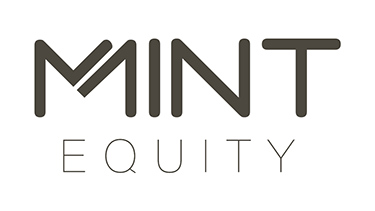2020 – what the hell happened?
Well, 2020 will certainly go down as the year everyone wants to forget! What started out as a good year, quickly changed for most of us by March when Australians experienced their first taste of ‘lockdown’. Fear of illness and restrictions implemented by the government broke hearts, minds, and livelihoods.
As the government released information on support packages, it became clear that the pandemic wasn’t like the GFC of 2008 and that property would be the most resilient asset class, particularly with already record low interest rates.
2020 was the year to buy property
We called it early… on 24 March 2020, we posted a Covid-19 Property and Finance Update where we flagged that it was still a good time to buy property in Australia – yep, even in a pandemic!
In March 2020, Tim Lawless of CoreLogic said “For buyers who have the confidence and financial well-being to remain active in the housing market through this period of weakness, there could potentially be some good buying opportunities to secure properties at a competitive price and at ultra-low interest rates.”
If you bought in early to mid 2020, you are likely to have seen a value uplift over the last few months.
Property opportunities in 2021
Property values remained stable throughout the year and are now experiencing growth, particularly in regional areas where lifestyle properties make working from home more enjoyable. At 30 November 2020, Regional NSW recorded a rise of 3.1% over the last 3 months, compared with Sydney at only 0.3% increase. For regional NSW, this is the highest quarterly growth rate since 2017.
The biggest issue we’re seeing is low stock levels, however this is particularly the case leading into Christmas and we’ll definitely see more properties hit the market early in 2021.
Early market indicators for pre-listing activities are still 11% higher than they were in December 2019, so that tells us that more sellers are preparing to list their properties for sale, than there were this time last year.
We all know it’s best to sell in the warmer months, so we’ll definitely see more properties come on the market in January, February and March.
First Home Buyers will continue to be strong players in the 2021 property market as the government initiated First Home Buyer Deposit Scheme and HomeBuilder grant continue. Regional markets like the Central Coast will continue to boom, whilst high density living in capital cities will have minimal growth and a higher risk profile.
Now is the time to refinance
With almost 63% of all loan applications in December being refinances, most people with a mortgage have realised there are lower interest rates available.
Interest rates will remain low for the next 4-5 years and variable interest rates will drop marginally next year, but for those who want the security and comfort of regular repayments, you can’t beat 2 or 4 year fixed interest rates of 1.89%. Who would have thought we would be looking at interest rates under 2% in the year of a pandemic?
Cost of funds low, buying is cheaper than renting
With interest rates so low, property becomes a more attractive option for those who previously found it difficult to get into the market. Now buying really is cheaper than renting and Australians have shown to be super savers during lockdown, with more people squirreling away money for a deposit. So, buyers are going to come to the surface next year and we’ll see the property market become more competitive.
Proposed Annual Property Tax will create a two-tier market
The review into proposed changes to stamp duty in NSW won’t change the property market for the better. We believe the implementation of an annual property tax will actually be detrimental to property values in the next 20 to 30 years. The issue being that the annual property tax stays with the property forever, and the tax will increase as land values increase. Ongoing property taxes may be a deterrent for those who would prefer to pay a one off stamp duty cost. For those who are looking to purchase a property for the long term, an annual property tax will continue to be a drain on the owners cashflow well into the future.
If the proposed changes go through next year, we’ll see buyers asking real estate agents if the property for sale has ongoing tax implications and some buyers will choose not to buy the ones that have an ongoing property taxes if they plan to hold the property long term. You will be financially worse off paying an annual property tax if you hold an investment property for more than 8 years under the proposed changes.
Credit restrictions will ease in 2021
Credit policies will ease a little next year, as the government aims to shift lending regulations from a “lender beware” model to “borrower responsibility” essentially removing the fear and risk factor lenders currently face, which have restricted a lot of people from securing a home or investment loan.
We’ll see more banks shift towards digital sign ups, removing the need to manually sign paper mortgage documentation or visit bank branches (you’d be lucky to find one!).
As always, if you’re applying for a home/investment property loan next year, keep in mind that Comprehensive Credit Reporting is now flowing through into real time applications and your spending habits and credit history is now visible (and scrutinised) by the banks.



